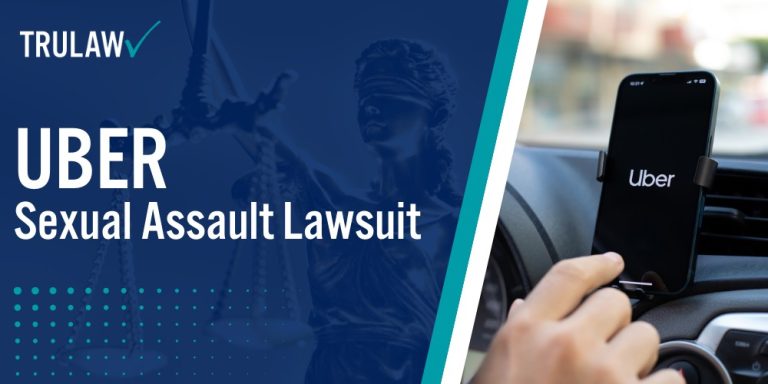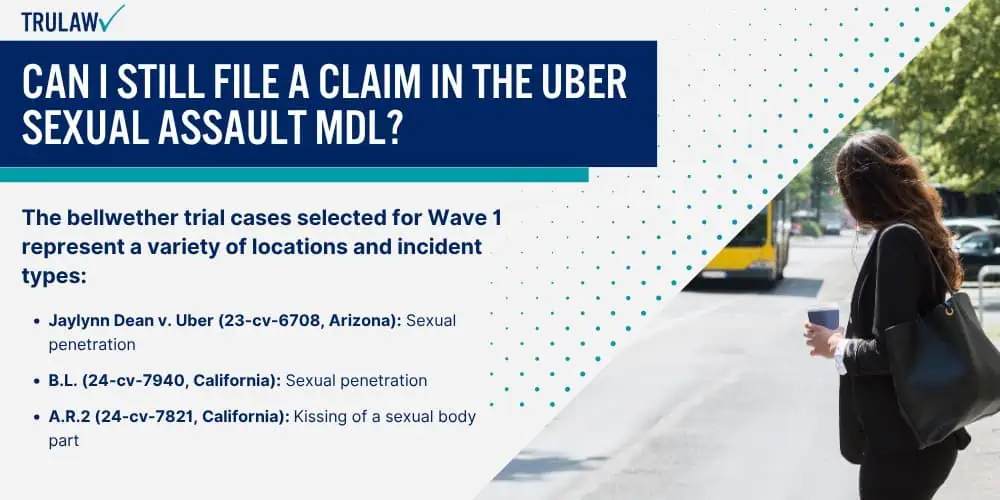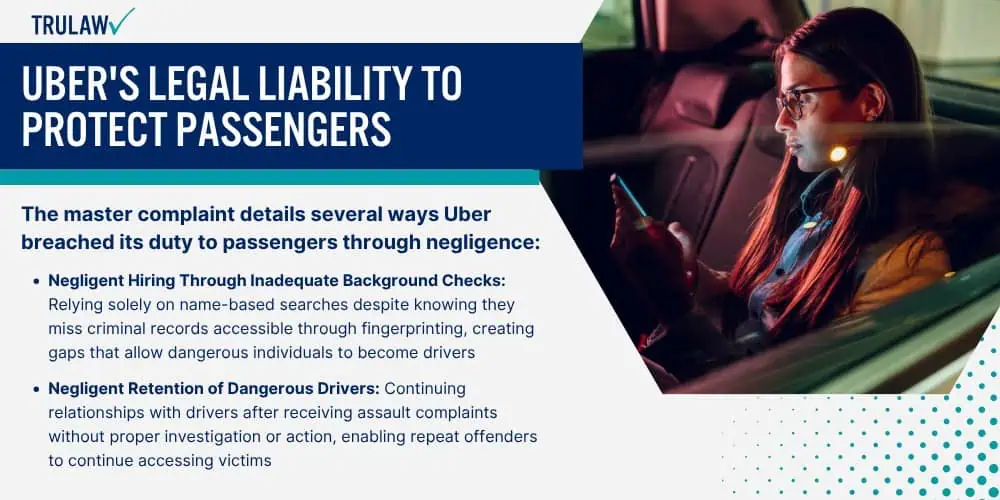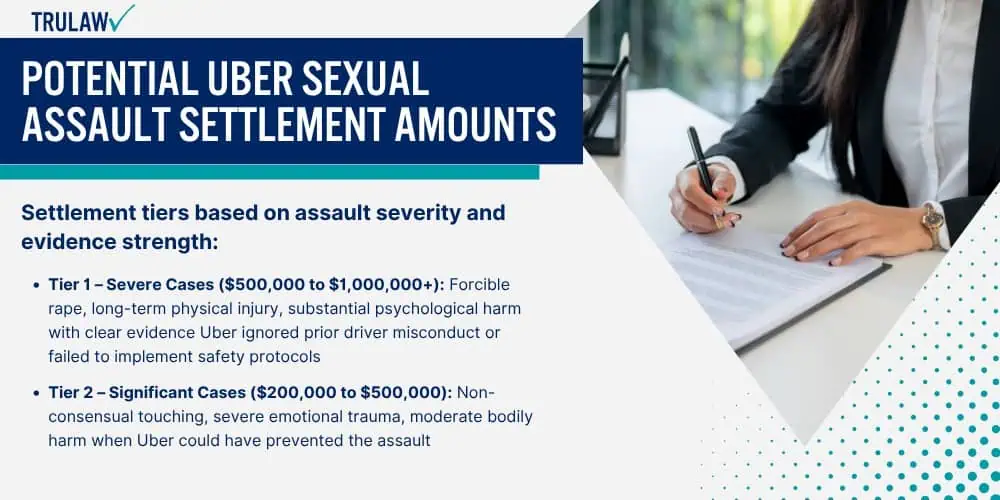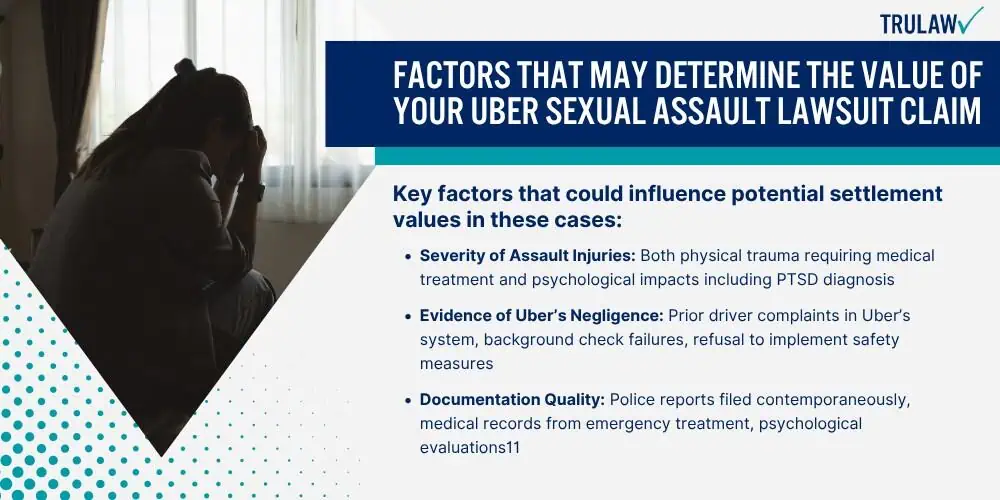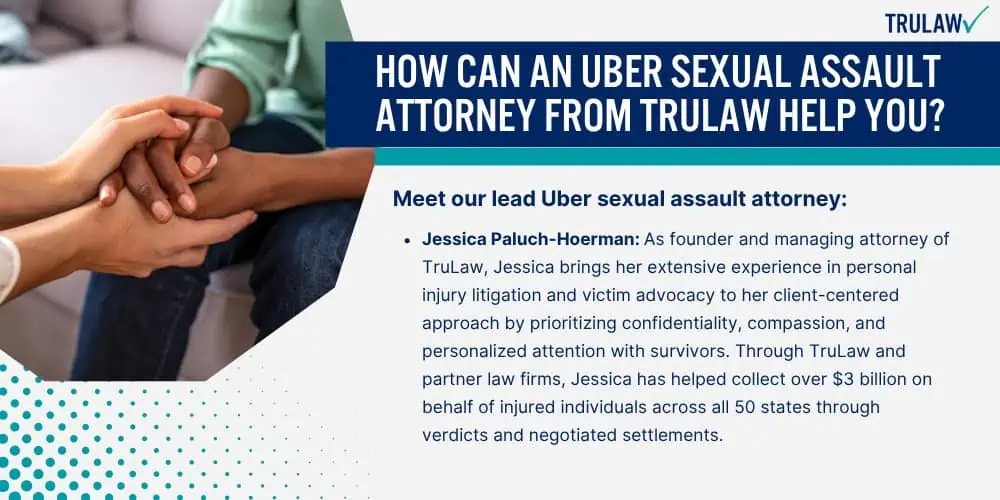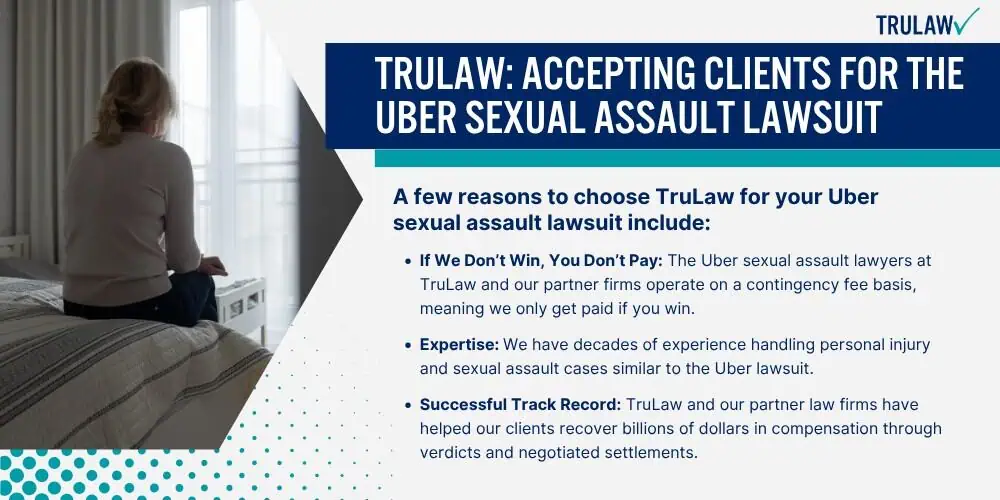On October 4, 2023, the United States Judicial Panel on Multidistrict Litigation issued a Transfer Order establishing MDL 3084 for the Uber Technologies, Inc., Passenger Sexual Assault Litigation. The Panel centralized 79 actions from 13 districts in the Northern District of California before the Honorable Charles R. Breyer.
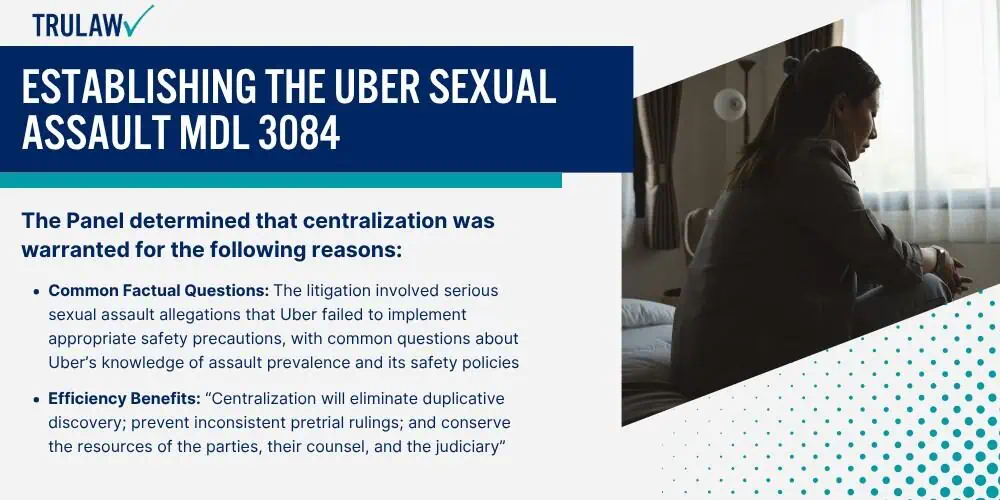
October 4, 2023 Transfer Order
The Panel, chaired by Judge Karen K. Caldwell, exercised its Section 1407 authority after determining that centralization would eliminate duplicative discovery, prevent inconsistent pretrial rulings, and conserve resources for all parties involved.
“Given the large and growing number of involved actions and counsel, centralization likely will streamline overlapping discovery and pretrial proceedings arising from nearly identical allegations regarding Uber’s corporate policies and practices as to alleged passenger sexual assaults.”
If you or a loved one were assaulted or harmed during an Uber ride, you may be eligible to seek justice and financial compensation through the legal process.
Contact TruLaw using the chat on this page to receive an instant case evaluation and determine whether you qualify to join others in filing an Uber Sexual Assault Lawsuit today.
Reasons to Centralize Ubers Sexual Assault Claims
The Panel rejected arguments where Uber argued that individual state law differences would predominate, finding that the common corporate policy and practice issues justified multidistrict treatment despite the personal nature of the individual claims.
The Panel determined that centralization was warranted for the following reasons:
- Common Factual Questions: The litigation involved serious sexual assault allegations that Uber failed to implement appropriate safety precautions, with common questions about Uber’s knowledge of assault prevalence and its safety policies
- Efficiency Benefits: “Centralization will eliminate duplicative discovery; prevent inconsistent pretrial rulings; and conserve the resources of the parties, their counsel, and the judiciary”
- Scale of Litigation: There were 79 actions pending in 13 districts with at least 14 different plaintiffs’ firms involved
- Venue Selection: The Northern District of California was chosen as 62 of the 79 actions were already pending there, Uber is headquartered in the district, and it would allow coordination with the California state court proceedings (JCCP No. 5188)
If you or someone close to you experienced sexual assault committed against you, harassment, or abuse during an Uber ride, you may have legal rights to compensation.
Contact TruLaw using the chat on this page to receive an instant case evaluation and learn if you qualify to sue Uber through an Uber Sexual Assault Lawsuit today.
How Uber’s Business Model Enabled Sexual Assaults
Legal experts are investigating Uber claims to prioritize passenger safety while the company failed to properly screen drivers.
Investigations are lead by allegations that the corporate philosophy of Uber views safety measures as obstacles to growth rather than core obligations to Uber passengers entrusting their lives to Uber’s platform.
Additional safety features Uber has failed to implement to protect passengers includes:
- Real-time Driver ID: Verification systems to confirm drivers match their registered accounts before each ride through the Uber app, preventing unauthorized account sharing that enabled unvetted individuals to operate vehicles
- In-vehicle Recording Devices: Camera systems proven to reduce sexual misconduct by 40% in industry studies, providing both deterrence and evidence preservation during serious incidents
- Gender-matching Options: Feature requested by 73% of female passengers in safety surveys, allowing women to request female drivers for enhanced comfort and security
- Zero-tolerance Policies: Immediate driver termination after first substantiated complaint of inappropriate behavior, rather than allowing multiple offenses before action
- Enhanced Fingerprint-based Screening: FBI database cross-referencing that catches 43% more criminal records than name-based checks, including federal sex offender registry matches
Internal documents revealed through discovery prove that Uber executives knew about safety risks from the company’s earliest days but chose growth over protection measures that would have saved thousands from assault.
The company’s partnership with Mothers Against Drunk Driving (MADD) marketed safety to the public while actual safety infrastructure remained deliberately inadequate, creating a false sense of security that lured victims into dangerous situations where an uber driver sexually assaulted them.
